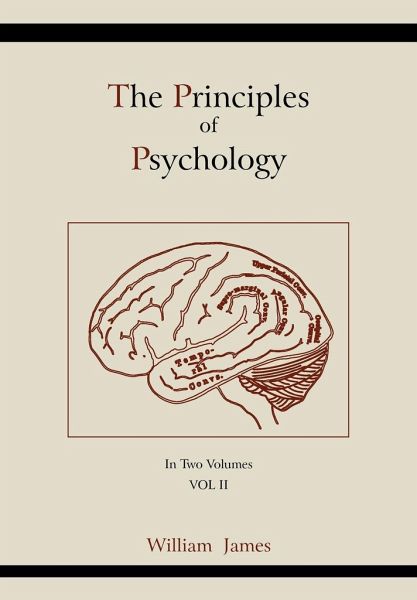
The Principles of Psychology (Vol 2)
Versandkostenfrei!
Versandfertig in 1-2 Wochen
35,99 €
inkl. MwSt.

PAYBACK Punkte
18 °P sammeln!
2010 Reprint of 1890 First Edition. Two volume facsimile of original edition. William James is widely regarded as America's greatest philosopher. He is also considered to be the father of modern psychology. The Principles of Psychology took him 12 years to write. He considered psychology a natural science that required analysis of feelings, desires, cognitions, reasoning, and decisions according to their own features and dynamics, in the same way that one would explain building a house by looking at its component parts. The Principles of Psychology is one of the few 19th century wo...
2010 Reprint of 1890 First Edition. Two volume facsimile of original edition. William James is widely regarded as America's greatest philosopher. He is also considered to be the father of modern psychology. The Principles of Psychology took him 12 years to write. He considered psychology a natural science that required analysis of feelings, desires, cognitions, reasoning, and decisions according to their own features and dynamics, in the same way that one would explain building a house by looking at its component parts. The Principles of Psychology is one of the few 19th century works on the subject to be cited continuously to this day. A classic work.














